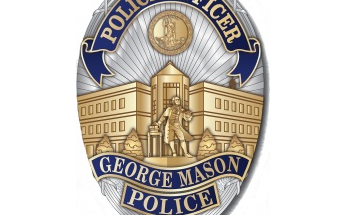But the program’s future is uncertain as leaders prepare to graduate
By Michael Eberhart, News Editor
Financial difficulties and food insecurity can be a major worry for Mason students, but the student-run Patriot Pantry program is available to help.
Professor Michael Galvin and graduate student Yara Mowafy created the Mason Pantry program to help low-income students in December, 2014.
“[Based on] the Patriot Success Survey, students felt like they weren’t meeting their nutritional needs or their housing needs,” said student director Noah Shoates.
Shoates and his co-director, Gary Hooker, took over operations of the pantry in the fall of 2015 and have been running it ever since as a part of Mason’s Student Support and Advocacy Office. They also receive support from the office of Social Action and Integrative Learning (SAIL) to connect student in poverty with resources both on campus and in their community.
“We dig deep to the root cause of why these things happen, why we’re seeing this on campus,” said SAIL Director Patty Mathison. “Students might be experiencing food insecurity, and making the decision between whether to buy books or pay for their food, or medicine or whatever they may need.”
Many colleges have partnered with local charities and non-profit organizations to create support networks across the country. Mason’s own food bank program is a member of the College and University Food Bank Alliance, which includes more than 500 other student food pantries. University food banks are now operating on more than 1-in-10 U.S. college campuses.
“It’s working with students to have a little bit of a deeper understanding — empathy, but also an awareness that this could happen to anybody at any time,” explained Mathison.
Patriot Pantry provides qualified students with up to 25.2 pounds of supplies per week, ranging from canned goods to complete meals, laundry supplies and toiletries, as well as personal hygiene items.
Shoates explained that the pantry has about 80 students use its services so far in the 2017-2018 academic year — a number that is rising with each new semester.
“Most live off campus,” said Shoates. “The on-campus students that we have, they don’t have meal plans or else they wouldn’t need it.”
The program relies on a network of more than 70 donors and volunteers to serve students and organize the pantry on an informal basis. Shoates and Hooker have also experimented with distributing prepaid cards from retailers like Giant and Wal Mart, allowing students to buy their own supplies without relying on the pantry’s shelves alone.
For the final weeks of the 2018 spring semester, the program partnered with the Office of Sustainability’s Patriot Pack-Out program, where “Patriot Pack-Out” bins will be set up in residence halls.
“That is the event that happens over the last two weeks of the semester where there will be big boxes in all the residence halls, where students can put all their non-perishable food items, school supplies, and small appliances that they no longer want,” explained Shoates.
But Shoates and his co-director are both seniors looking forward to graduation this May, and it is unclear who will take over the pantry from them before the fall semester.
“We were trained for three months before we started working,” explained Shoates, “but we may not even be here to train the people who are coming in after us.”
With no one being trained to take over operations, it is an open question of how the Patriot Pantry will continue to meet the needs of students struggling with food-insecurity at Mason.
“We wanted to support them in any way that we could,” said Mathison, who taught both Pantry co-directors Hooker and Shoates as freshmen volunteers. “Gary and Noah mean a lot to me personally, and we’ll continue to work with them and partner with them for the future.”
Photos by Michael Eberhart





